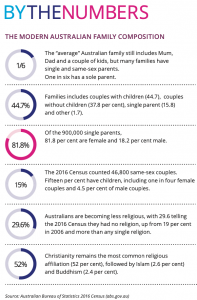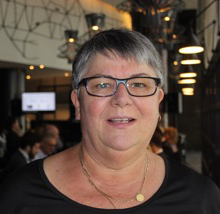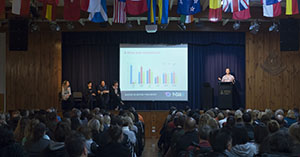Respect starts in the home, where Australian families continue to evolve.
Young people are shaped by many forces, including friends, classmates, teachers, the wider community and social media. But the home is where children experience their first role models and learn how to behave. The importance of parents and carers providing a respectful environment and modelling respectful behaviour cannot be overemphasised.
What parents do and say, such as how they eat, exercise and treat others, influences their children. A child’s home is their reality. The raisingchildren.net.au says parents influence their child’s basic values, such as religious values, and issues related to their future, such as educational choices. The stronger your relationship with your child, the more influence you’ll have.
Your child’s friends are more likely to influence everyday behaviour, such as the music they listen to, the clothes they wear and whether they pick on or bully someone.
It’s OK to Disagree, But..
- Model respectful behaviour.
- Treat siblings and partners equally, regardless of gender.
- Set boundaries with consequences for breaking them.
- Be consistent.
- It’s OK to disagree but use respectful language.
- Don’t criticise ex-partners in front of children.
- Minimise swearing and acknowledge inevitable slip-ups.
- Don’t generalise about groups such as LGBTIQ+ or those with disabilities.
- Tell your children you love them regardless of their sexuality or gender identity.
- Don’t call anyone useless, unattractive or too fat.
- Pull others up if they speak disrespectfully
and explain why. - Never use violence or aggression to make a point.
Modelling Good Behaviour
It starts with creating a respectful and nurturing environment where all family members are respected, regardless of marital status, family composition, or gender or sexual identity.
This includes families with parents who no longer live together.
Language is crucial, and words matter. Children notice what adults say and how they say it. Disrespectful talk and actions teach children that this is how people treat each other.
Modelling respectful behaviour, having boundaries and calling out disrespectful behaviour all help children learn the importance of respecting others and how it can make a difference.
We all make mistakes. If you do, admit you’ve done the wrong thing and explain why.
Tips for Role-Modelling
- Include your child in family discussions and allow them to give input into family decisions, rules and expectations.
- Try to practise what you preach. Teenagers can and do notice when you don’t!
- Work towards a healthy lifestyle by eating well and exercising regularly.
- Avoid making negative comments about your body – and other people’s.
- Show that you enjoy education and learning. If you make it seem interesting and enjoyable, your child is more likely to be positive about school.
- Keep a positive attitude. Think, act and talk in an optimistic way.
- Take responsibility by admitting your mistakes and talking about how you can correct them. Try not to blame everything on others or circumstances.
- Use problem-solving skills to deal with challenges or conflicts in a calm and productive way.
- Show kindness and respect to others.
Sibling Rivalry
Siblings don’t choose each other, which can mean personality clashes, disagreements and sibling rivalry. While we cannot expect them to be best friends, siblings should be taught to respect each other.




